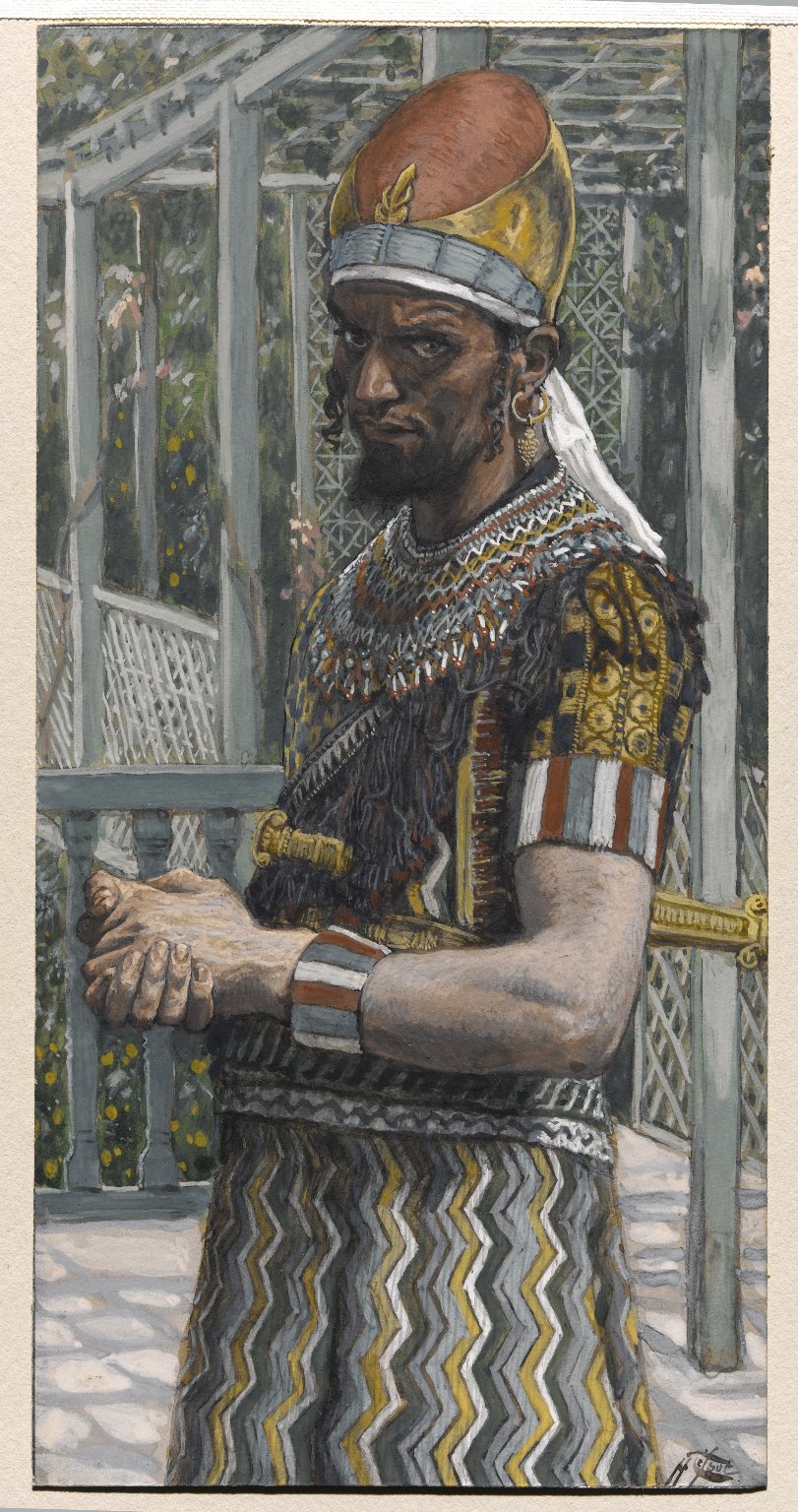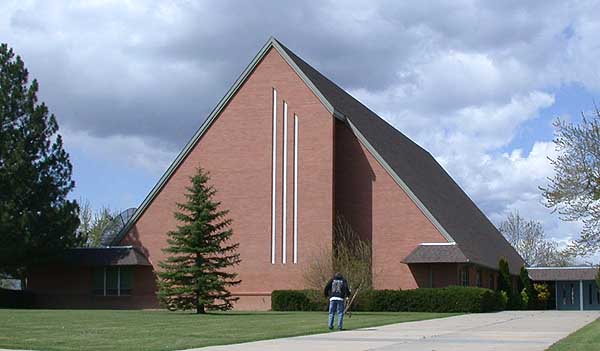|
Subbotniks
Subbotniks ( rus, Субботники, p=sʊˈbotnʲɪkʲɪ, "Sabbatarians") is a common name for adherents of Russians, Russian religious movements that split from Sabbatarianism, Sabbatarian sects in the late 18th century. The majority of Subbotniks were converts to Rabbinic Judaism, Rabbinic or Karaite Judaism, Karaite Judaism from Christianity. Other groups included Heresy of the Judaizers, Judaizing Christians and Spiritual Christianity, Spiritual Christians. There are three main groups of people described as Subbotniks: * Judaizing Talmudists: Subbotnik Gerim, converts to Rabbinic Judaism, also described as "Gery" (), "Talmudisty" (), or "Shaposhniki". * Karaimites or Karaite Subbotniks (): also described as "Russian Karaites" (), considering themselves as adherents of Karaite Judaism. They recognize only the scriptural authority of the Torah and reject the Talmud; however, it has been reported that they do not practice circumcision. * Subbotnik Molokans (): in contra ... [...More Info...] [...Related Items...] OR: [Wikipedia] [Google] [Baidu] |
Gerim
Gerim (Hebrew language, Hebrew plural: גרים "converts", singular masculine: גר "ger", singular feminine: גייורת "giyoret") also known as gerey tzedek (גְּיֵירֵי צֶדֶק righteous proselytes) are non-Jews who have converted to Judaism and have become "Naturalization, naturalized" Jews according to Halakha, Jewish Law. A ger acquires a Soul#Judaism, Jewish soul upon the completion of the conversion known as גִּיּוּר ("giur") or גֵּרוּת ("geirut") in the process of conversion to Judaism. It is important to note that there is a distinction between a "ger tzedek" and a "ger toshav" (גר תושב), who is a "resident alien" and is bound only to the Seven Laws of Noah. Overview Being Jew, Jewish is a combination of both an ethnicity and of the religion of Judaism. The religion of Judaism does not seek converts, prospective converts must complete the arduous process without the support present in Universalism, universalist religions like Chris ... [...More Info...] [...Related Items...] OR: [Wikipedia] [Google] [Baidu] |
Molokan
The Molokans ( rus, молокан, p=məlɐˈkan or , "dairy-eater") are a Russian Spiritual Christian sect that evolved from Eastern Orthodoxy in the East Slavic lands. Their traditions, especially dairy consumption during Christian fasts, did not conform to those of the Russian Orthodox Church, and they were regarded as heretics (). The term is an exonym used by their Orthodox neighbors. Members tend to identify themselves as Spiritual Christians (, ). The specific beliefs and practices varied sharply between the various sects of Molokans. Some built chapels for worship, kept sacraments, and revered saints and icons, while others (like the Ikonobortsy, "icon-wrestlers") discarded these practices in the pursuit of individual approaches to scripture. In general, they rejected the institutionalized formalism of Orthodoxy and denominations with similar doctrines in favor of more emphasis on "Original Christianity" as they understood it. They emphasized spirituality and spi ... [...More Info...] [...Related Items...] OR: [Wikipedia] [Google] [Baidu] |
Subbotnik Map
Subbotnik and voskresnik (from rus, суббо́та, p=sʊˈbotə for "Saturday" and , for "Sunday") were days of volunteer unpaid work on weekends after the October Revolution, though the word itself is derived from (''subbota'' for Saturday) and the common Russian suffix (-nik)."Millions in Soviet Donate A Day's Work to Country" by Theodore Shabad, ''The New York Times'', April 18, 1971, p1 The tradition is continued in modern and some other former Soviet Republics. Subbotniks are mostly organized ... [...More Info...] [...Related Items...] OR: [Wikipedia] [Google] [Baidu] |
Sabbath In Seventh-day Churches
The seventh-day Sabbath, observed from Friday evening to Saturday evening, is an important part of the beliefs and practices of seventh-day churches. These churches emphasize biblical references such as the ancient Hebrew practice of beginning a day at sundown, and the Genesis creation narrative wherein an "evening and morning" established a day, predating the giving of the Ten Commandments (thus the command to "remember" the sabbath). They hold that the Old and New Testament show no variation in the doctrine of the Sabbath on the seventh day. Saturday, or the seventh day in the weekly cycle, is the only day in all of scripture designated using the term Sabbath. The seventh day of the week is recognized as Sabbath in many languages, calendars, and doctrines, including those of Catholic, Lutheran, and Orthodox churches. It is still observed in modern Judaism in relation to Mosaic Law. In addition, Oriental Orthodox, specifically the Orthodox Tewahedo Churches are known to observe ... [...More Info...] [...Related Items...] OR: [Wikipedia] [Google] [Baidu] |
Spiritual Christianity
Spiritual Christianity () is the group of belief systems held by so-called folk Protestants (), including non-Eastern Orthodox indigenous faith tribes and new religious movements that emerged in the Russian Empire. Their origins are varied: some come from Protestant movements imported from Europe to Russia by missionaries, travelers and workers; others from disgust at the behavior (absenteeism, alcoholism, profiteering) of Orthodox priests, still others from the Bezpopovtsy Raskolniks. Those influences, mixed with folk traditions, resulted in communities that are collectively called (sectarians). Such communities were typically documented by Russian Orthodox clergy with a label that described their heresy such as not fasting, meeting on Saturday (sabbatarians), rejecting the spirit (spirit wrestlers), body mutilation (castigators), self-flagellation, or suicide. These heterodox (non- orthodox) groups "rejected ritual and outward observances and believe instead in the direc ... [...More Info...] [...Related Items...] OR: [Wikipedia] [Google] [Baidu] |
Sabbatarianism
Sabbatarianism advocates the observation of the Sabbath in Christianity, in keeping with the Ten Commandments. The observance of Sunday as a day of worship and rest is a form of first-day Sabbatarianism, a view which was historically heralded by nonconformist denominations, such as Congregationalists, Presbyterians, Methodists, Moravians, Quakers and Baptists, as well many Episcopalians. Among Sunday Sabbatarians (First-day Sabbatarians), observance of the Lord's Day often takes the form of attending the Sunday morning service of worship, receiving catechesis through Sunday School, performing acts of mercy (such as evangelism, visiting prisoners in jails and seeing the sick at hospitals), and attending the Sunday evening service of worship, as well as refraining from Sunday shopping, servile work, playing sports, viewing the television, and dining at restaurants. The impact of first-day Sabbatarianism on Western culture is manifested by practices such as Sunday blue laws. S ... [...More Info...] [...Related Items...] OR: [Wikipedia] [Google] [Baidu] |
Eastern Orthodox Church
The Eastern Orthodox Church, officially the Orthodox Catholic Church, and also called the Greek Orthodox Church or simply the Orthodox Church, is List of Christian denominations by number of members, one of the three major doctrinal and jurisdictional groups of Christianity, with approximately 230 million baptised members. It operates as a Communion (Christian), communion of autocephalous churches, each governed by its Bishop (Orthodox Church), bishops via local Holy Synod, synods. The church has no central doctrinal or governmental authority analogous to the pope of the Catholic Church. Nevertheless, the Ecumenical Patriarch of Constantinople is recognised by them as ''primus inter pares'' (), a title held by the patriarch of Rome prior to 1054. As one of the oldest surviving religious institutions in the world, the Eastern Orthodox Church has played an especially prominent role in the history and culture of Eastern Europe, Eastern and Southeastern Europe. Since 2018, the ... [...More Info...] [...Related Items...] OR: [Wikipedia] [Google] [Baidu] |
Second Coming
The Second Coming (sometimes called the Second Advent or the Parousia) is the Christianity, Christian and Islam, Islamic belief that Jesus, Jesus Christ will return to Earth after his Ascension of Jesus, ascension to Heaven (Christianity), Heaven (which is said to have occurred about two thousand years ago). The idea is based on Jesus and messianic prophecy, messianic prophecies and is part of most Christian eschatologies. In Islamic eschatology, Jesus in Islam, Jesus (''ʿĪsā ibn Maryam'') is also believed to return in the end times. According to Islamic belief, he will descend from Heaven to defeat the Al-Masih ad-Dajjal, false messiah (''al-Masih ad-Dajjal''), restore justice, and reaffirm monotheism. His return is regarded as one of the Judgement Day in Islam, major signs of the Day of Judgment, and he is viewed as a revered prophet, not divine, in Islamic theology. Other faiths have various interpretations of it. Terminology Several different terms are used to refer ... [...More Info...] [...Related Items...] OR: [Wikipedia] [Google] [Baidu] |
Jesus
Jesus (AD 30 or 33), also referred to as Jesus Christ, Jesus of Nazareth, and many Names and titles of Jesus in the New Testament, other names and titles, was a 1st-century Jewish preacher and religious leader. He is the Jesus in Christianity, central figure of Christianity, the Major religious groups, world's largest religion. Most Christians consider Jesus to be the Incarnation (Christianity), incarnation of God the Son and awaited Messiah#Christianity, messiah, or Christ (title), Christ, a descendant from the Davidic line that is prophesied in the Old Testament. Virtually all modern scholars of classical antiquity, antiquity agree that Historicity of Jesus, Jesus existed historically. Accounts of Life of Jesus, Jesus's life are contained in the Gospels, especially the four canonical Gospels in the New Testament. Since the Age of Enlightenment, Enlightenment, Quest for the historical Jesus, academic research has yielded various views on the historical reliability of t ... [...More Info...] [...Related Items...] OR: [Wikipedia] [Google] [Baidu] |
First Partition Of Poland
The First Partition of Poland took place in 1772 as the first of three partitions that eventually ended the existence of the Polish–Lithuanian Commonwealth by 1795. The growth of power in the Russian Empire threatened the Kingdom of Prussia and the Habsburg monarchy and was the primary motive behind the First Partition. Frederick the Great, King in Prussia, engineered the partition to prevent Austria, which was envious of Russian successes against the Ottoman Empire, from going to war. Territories in Poland–Lithuania were divided by its more powerful neighbours (Austria, Russia and Prussia) to restore the regional balance of power in Central Europe among those three countries. With Poland unable to defend itself effectively and foreign troops already inside the country, the Polish Sejm ratified the partition in 1773 during the Partition Sejm, which was convened by the three powers. Background By the late 18th century, the Polish–Lithuanian Commonwealth had been redu ... [...More Info...] [...Related Items...] OR: [Wikipedia] [Google] [Baidu] |
Hebrew Bible
The Hebrew Bible or Tanakh (;"Tanach" . '' Random House Webster's Unabridged Dictionary''. ; ; or ), also known in Hebrew as (; ), is the canonical collection of scriptures, comprising the Torah (the five Books of Moses), the Nevi'im (the Books of the Prophets), and the [...More Info...] [...Related Items...] OR: [Wikipedia] [Google] [Baidu] |






